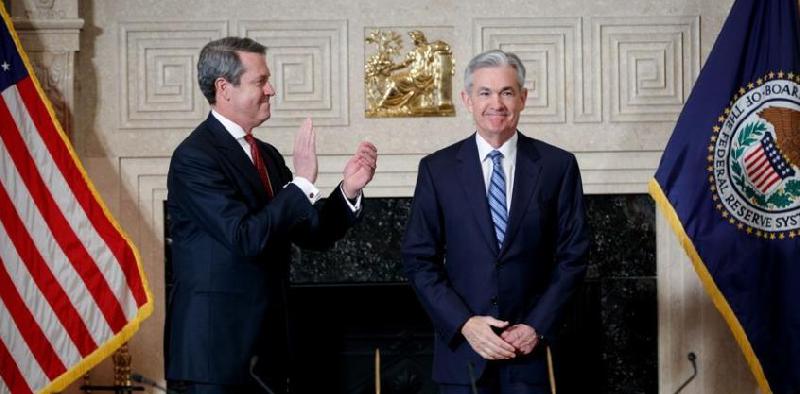
U.S. Federal Reserve Chairman Jerome Powell said on Tuesday that the central bank will be patient in charting out the course for future monetary policy, warning that the U.S. economy still faces "longer-run challenges."
PATIENCE IN MONETARY POLICY
Testifying before Congress, Powell told lawmakers that the Fed will be "taking a patient approach with regard to future policy changes." He said policy decisions "will continue to be data dependent and will take into account new information as economic conditions and the outlook evolve."
The central bank chief told the Senate Banking Committee that the current target range for the federal funds rate is at 2.25 percent to 2.50 percent.
The Fed will be "paying close attention to global economic and financial developments and assessing their implications for the outlook," he said.
Powell also talked about the Fed's effort to gradually reduce its balance sheet by reducing its holdings of Treasury and agency securities, often known as the balance sheet normalization program, which started in October 2017.
He said the Fed's total assets currently stand at close to 4.0 trillion U.S. dollars, representing a decline of about 310 billion dollars since the middle of last year.
Powell said the Federal Open Market Committee, the Fed's policy-making body, "can now evaluate the appropriate timing and approach for the end of balance sheet runoff."
"I would note that we are prepared to adjust any of the details for completing balance sheet normalization in light of economic and financial developments," he said.
In the longer run, the size of the balance sheet will be determined by the demand for Federal Reserve liabilities such as currency and bank reserves, he added.
BANKS' RESERVE BALANCES
Responding to a question from Senate Banking Committee Chairman Mike Crapo, Powell said estimates for the amount of reserves that the banks are required to keep in the Fed so that the central bank can achieve its regulatory goals "have actually gone up substantially" over the course of last year or so.
The banks' reserve balances with the Federal Reserve have declined by around 1.2 trillion dollars, or more than 40 percent, from their peak level of 2.8 trillion dollars in 2014, though the number is still much higher than the 43 billion dollars in early 2008.
Powell said the estimates of around 1 trillion dollars by the public, plus a buffer, are "a reasonable starting point, an estimate of where we might wind up," Powell said.
He reiterated that the demand for reserves "is going to be very substantially higher than it was before the (2008 financial) crisis, and will not go back to those lower levels in any case."
LONGER-RUN CHALLENGES TO ECONOMY
Powell said the U.S. economy is estimated to have expanded by close to 3 percent in 2018. The overall consumer price inflation is estimated to have been 1.7 percent in December, which is below the Fed's 2 percent target.
"The economy grew at a strong pace, on balance, last year, and employment and inflation remain close to the Federal Reserve's statutory goals of maximum employment and stable prices," he said.
Powell said the Fed saw muted inflation pressures, even now with historically low unemployment, and an ongoing recovery in the labor market.
"That gives us the ability to be patient with monetary policy," he said.
Nevertheless, the Fed chief cautioned about "some crosscurrents and conflicting signals" seen over the past few months.
He cited the financial markets becoming more volatile toward year-end, financial conditions proven less supportive of growth than they were earlier last year, as well as slowing growth in some major economies.
"We will carefully monitor these issues as they evolve," he said.
Stressing the importance of certainty in trade not only for the U.S. economy but also for the world economy, Powell said "uncertainty is the enemy of business."
While the Fed doesn't comment on trade policy, Powell said it has heard a lot about uncertainty in U.S. trade pacts with other countries in the past year. "And we do sense it's been holding back some decisions, probably had some minor effect on confidence and maybe activity."
Powell said the United States faces "important longer-run challenges."
Productivity growth "has been too low," and labor force participation among prime-age men and women is "lower than in most other advanced economies," he said.
Other longer-run challenges range from relatively stagnant incomes for many families and a lack of upward economic mobility among people with lower incomes, to a "widely agreed" fact that the federal government debt is on an unsustainable path, the central bank chief said.
The U.S. debt is "fairly high" in relation to its current GDP level, "and much more importantly than that, it's growing faster than GDP, fairly significantly faster," he said.
The U.S. is going to have to either spend less or raise more revenue, he said.
"The idea that deficits don't matter for countries that can borrow in their own currency, I think, is just wrong," Powell said.
Powell is expected to testify before the House of Representatives on Wednesday.

















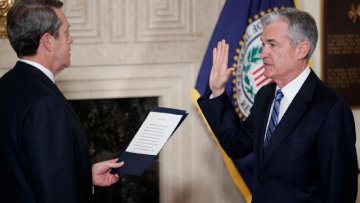
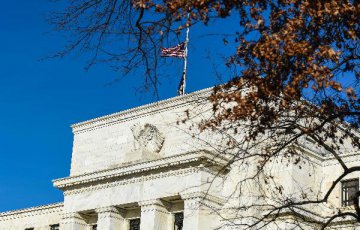
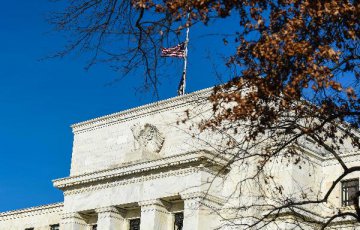
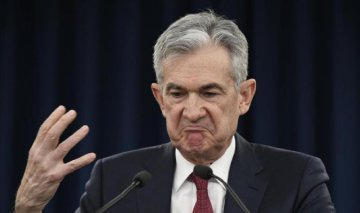
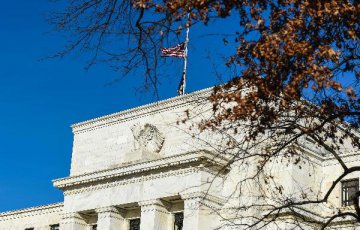


Latest comments